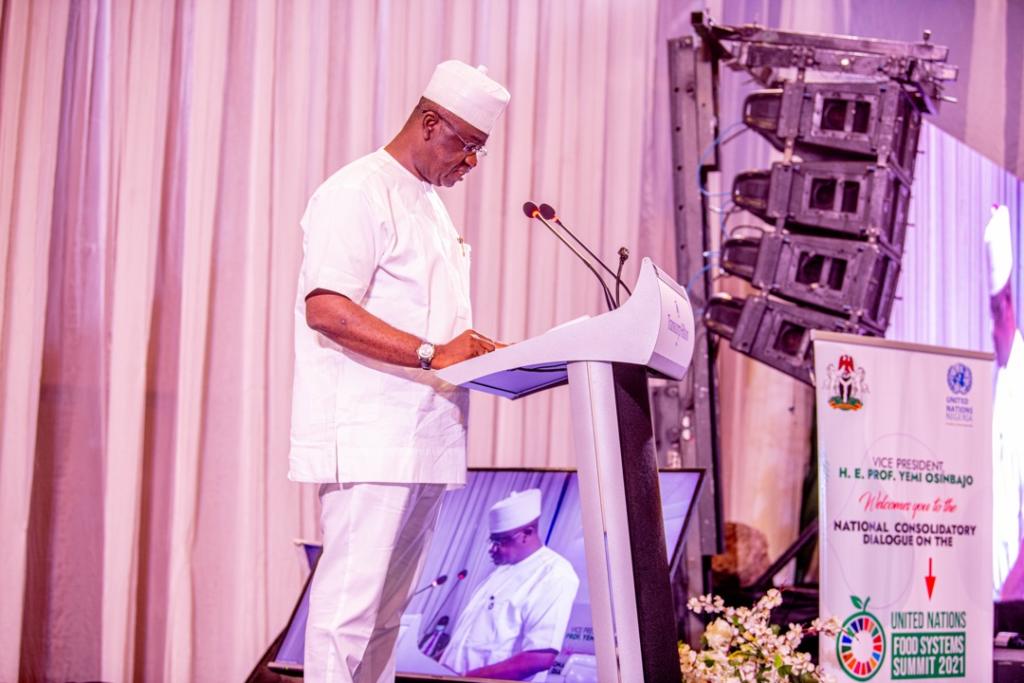
The Vice president, Yemi Osinbanjo has stated that ‘’lifting 100 million Nigeria out of poverty is achievable only if we improve our agricultural and food system which assures us not only on good food but decent jobs’’, adding that commitment to food sustainability in Nigeria is one of the key strategies in eliminating poverty across Nigeria.
Osinbajo made this assertion in Abuja, during a one-day National Food Systems summit organized by the Federal Ministry of Finance Budget and National Planning in partnership with the United Nations.
Speaking, the Vice President said that the purpose of the Consolidatory Dialogue on food systems was to examine all the critical issues identified at various dialogues to make inputs and suggestions as well as map out revolutionary food systems into 3 to 10 years implementation plan.
He mentioned that the three levels of those dialogues prescribed by the United Nations in collaboration with all relevant stakeholders of the food value chain was to effectively articulate physical pathways to sustainable resilience and reputable food systems for Nigerians and the world, “as we work to realize the vision 2030 agenda for sustainable development”.
The Vice President praised stakeholders and Development Partners for their effort and opportunity to holistically examine all the elements of the Nigerian food system; urging stakeholders and partners to own the process and be ready to translate the recommendations of the dialogue to prompt action, practice environmentally sustainable production as well as empower the communities by creating jobs and livelihood to sustain food systems as desired.
Speaking also at the event was the United Nations Secretary-General, Amina J. Mohammed who pointed out that the United Nations was playing a fundamental role in supporting Nigerian’s Food Systems Action Track. ‘’ we have called this a people summit’’ and we are seeing this emerge as a reality through the devised local voices especially of our women and of our youths and the engagement that is really active at the national level’’.
She confirmed that many changes in the food systems are opportunities to drive progress across all the sustainable development goals as well as address climate emergency, ensure better health and well-being for Nigerians.
The Minister of State, Budget and National Planning, Prince Clem Ikanade Agba, on his part, has noted that Nigeria would be food and Nutrition secured if Nigeria was determined reiterating that the sustainability of the country’s food systems was critical to the achievement of sustainable development goals by 2030.

According to Agba, the Dialogue was to synthesize all that were discussed in all dialogues held till date by numerous stakeholders adding that Nigerian’s position and country-led solutions in addressing the challenges of each of the Food Systems Action Track were clarified and better understood by all.
He said that in the course of those dialogues, ‘’we have engaged numerous stakeholders, the farmers, youths, women, indigenous people, processers, transporters, researchers, and policymakers in agriculture, food nutrition, health and environment to fashion out ways of addressing the challenges of our food systems’’.
Also, ‘’We have achieved so far by following through laid down principles and guidelines for the conduct of these dialogue by the United Nations, Nigeria can comfortably occupy its rightful place among United Nations.
Hassan Dodo
Director Information, MBNP
July 3rd 2021.
